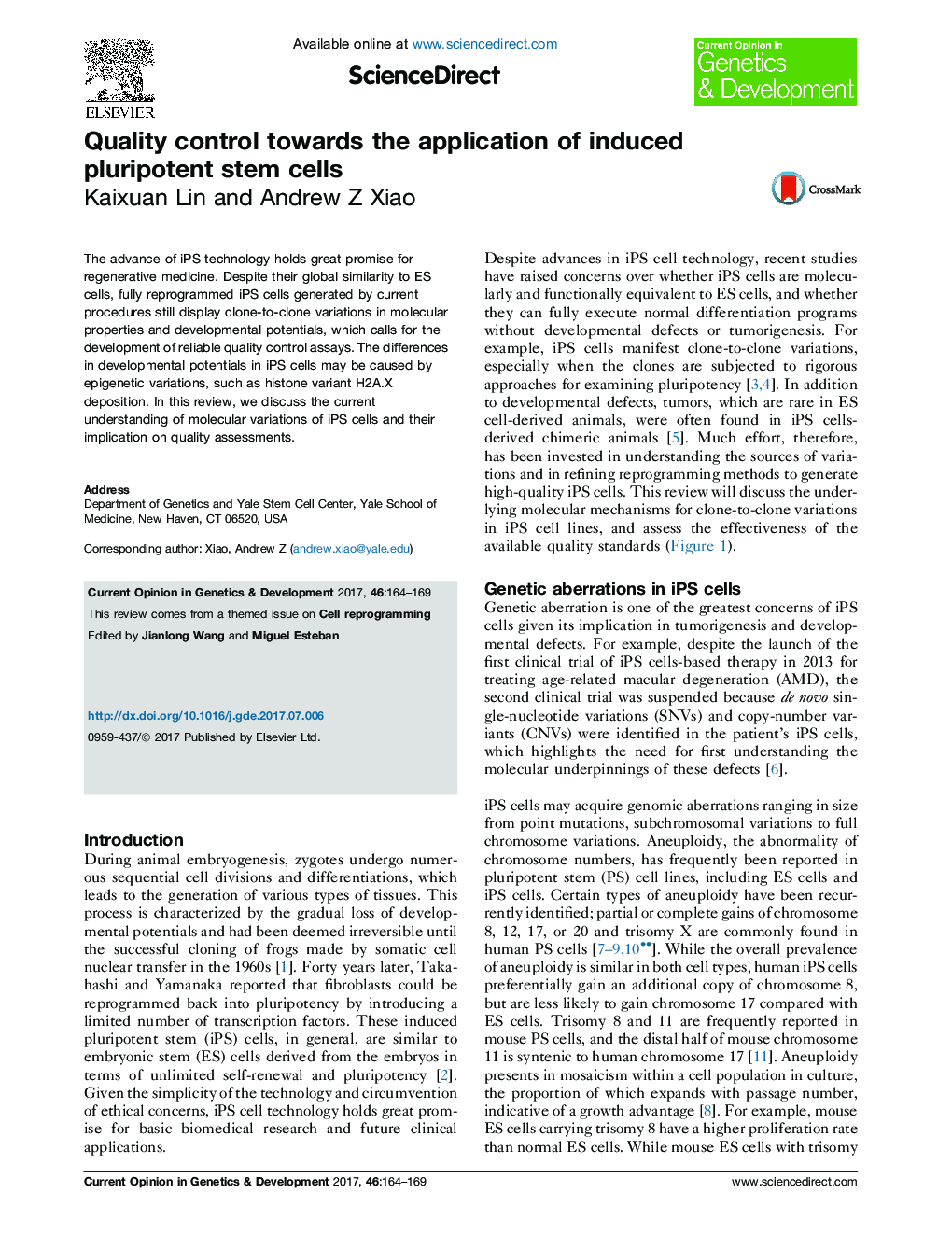| Article ID | Journal | Published Year | Pages | File Type |
|---|---|---|---|---|
| 5585705 | Current Opinion in Genetics & Development | 2017 | 6 Pages |
Abstract
The advance of iPS technology holds great promise for regenerative medicine. Despite their global similarity to ES cells, fully reprogrammed iPS cells generated by current procedures still display clone-to-clone variations in molecular properties and developmental potentials, which calls for the development of reliable quality control assays. The differences in developmental potentials in iPS cells may be caused by epigenetic variations, such as histone variant H2A.X deposition. In this review, we discuss the current understanding of molecular variations of iPS cells and their implication on quality assessments.
Related Topics
Life Sciences
Biochemistry, Genetics and Molecular Biology
Developmental Biology
Authors
Kaixuan Lin, Andrew Z Xiao,
